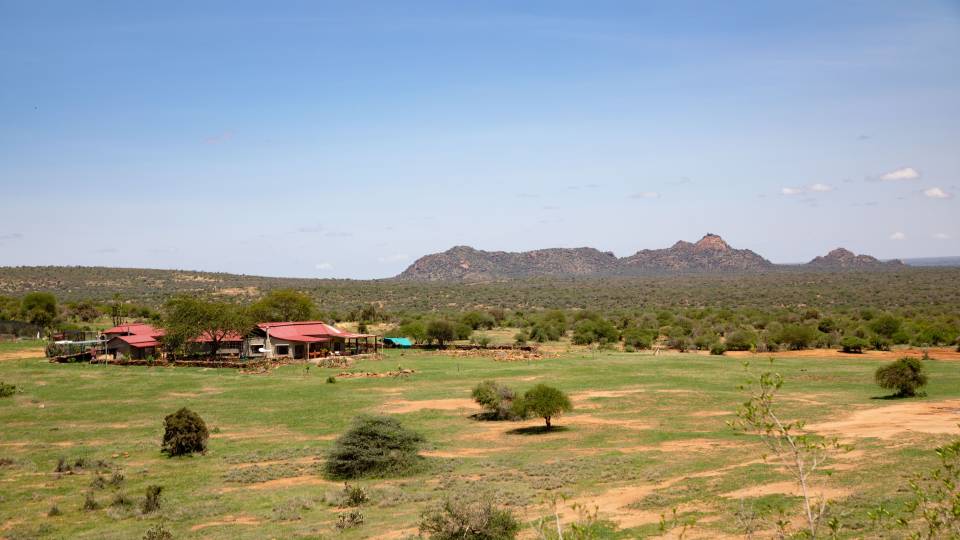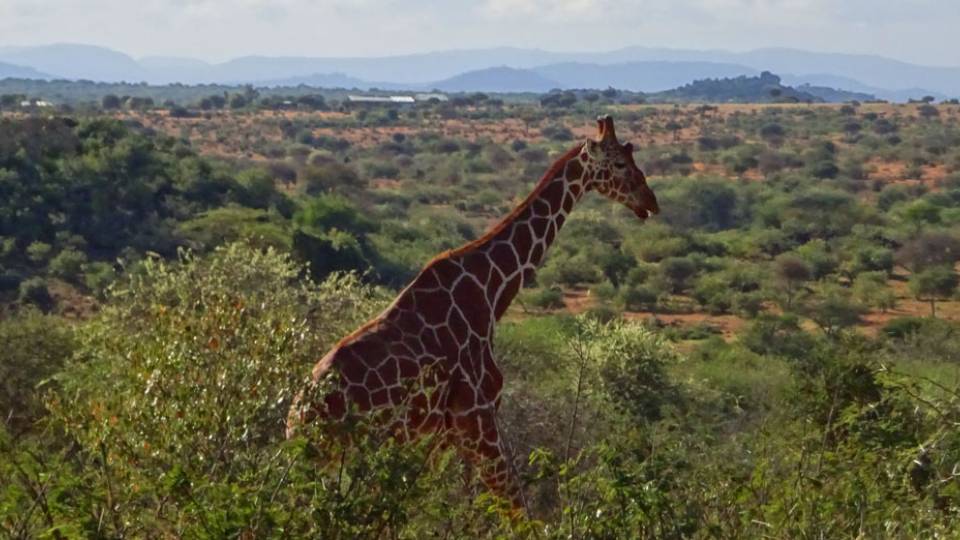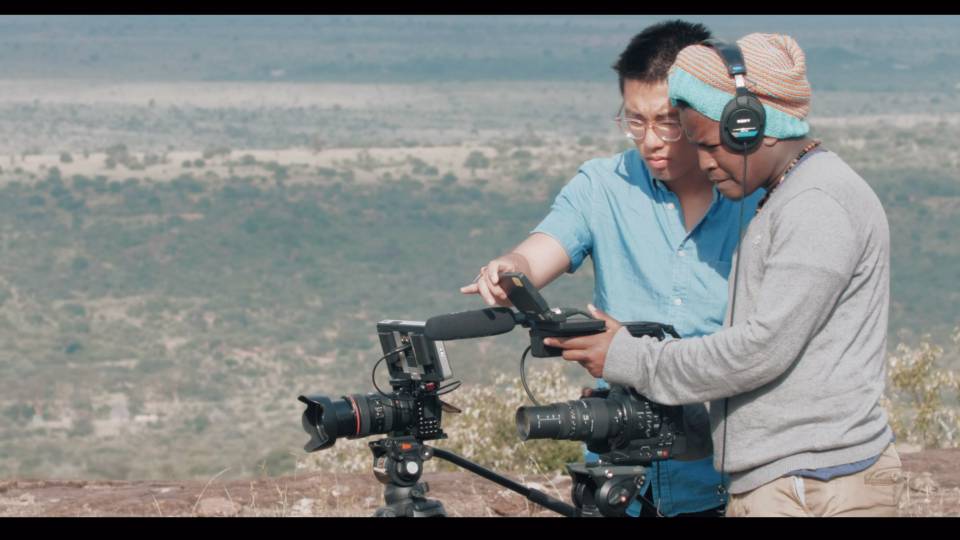Growing up in her native Hawaii, Zoe Sims, a 2017 alumna, discovered a passion for ecology that began with exploring coral reefs.
At Princeton, she conducted two years of research for her senior thesis, studying the effects of groundwater pollution on coral reefs in Bermuda. She distinguished herself as a scientist and a student, majoring in ecology and evolutionary biology(Link is external) and a certificate in environmental studies(Link is external). After graduation, she embarked on a new journey through a one-year Princeton in Africa(Link is external) fellowship at the Mpala Research Centre(Link is external), a multidisciplinary and multi-institutional field laboratory on a 50,000-acre reserve and ranch in central Kenya.
During her fellowship, she expanded her interests in wildlife/human interaction, science and nature writing, and community outreach.
“Living and learning at Mpala has changed me in ways that I never expected,” Sims said. “I am definitely at my happiest when I’m outside in nature.”
Founded in 1999, Princeton in Africa (PiAf) matches talented and passionate college graduates with organizations working across Africa for yearlong service placements. The program is open to graduating seniors and young alumni from any college or university accredited in the United States. PiAf fellows have helped improve education and public health, source fresh water and alternative energy, increase family incomes and more. Since its founding in 1999, PiAf has had 550 fellows in 36 countries.
“Princeton in Africa pairs beautifully with Princeton’s dedication to public service because it offers students who learned about service, maybe through an internship as an undergraduate, the opportunity to continue doing that and really to test those skills in a real-life work environment,” said Jodi Ringel, executive director of PiAf. “We hear from alumni and fellows all the time that this is not necessarily the continuation of your education but more the first step in your career. So we are seeking out individuals who want to dedicate not just a short period, but really a lifetime to serving others in some capacity.”
Sims’ responsibilities at Mpala included writing stories for the center’s website and newsletter about the research going on at Mpala, such as its successful effort to vaccinate local dogs against rabies. She provided logistical and administrative support to the many researchers and graduate students from all over Africa and the world who come to Mpala, as well as undergraduate students from Princeton and Columbia University who participate in Princeton’s spring semester field program(Link is external) and the Department of Anthropology(Link is external)’s “Human Evolution” course, which includes a spring break trip to Mpala. She also helped run programming for dozens of schoolchildren who participate in Mpala’s conservation clubs.
Sims said that every aspect of her daily experiences at Mpala reinforced and enriched her connection to the natural world.
“As human beings, we are part of our ecosystems, everywhere we are. I find that being here at Mpala in Kenya, I’m more acutely aware of that fact — partly because every morning I wake up to the sound of guinea fowl in the bushes outside my room, and many days I go to sleep at night to the sound of hyenas in the distance calling to each other,” she said. “All of these things are just these reminders that I am part of nature.”
Sims also forged deep connections and friendships with the dozens of staff members at Mpala and their families — many of whom have lived in the area all their lives and have children who attend the pre-K-fifth grade school at Mpala. “I have never gone to a new place before and felt so quickly at home and so welcomed with such open arms,” she said.
In early September, Sims completed the last element of her fellowship at Mpala — “on-boarding” the two new fellows who will replace her. After leaving Mpala, she traveled to the Kenyan coast — “home to some incredible coral reef ecosystems!” — which brought her full circle to her undergraduate work. She is taking an eastern route home to Hawaii, with stops to visit a friend who is doing a Princeton in Asia(Link is external) fellowship in Thailand, and another who is working in Hong Kong. Once home, she plans to focus on looking for her next position, which she hopes will relate to her interest in applied environmental science, especially the intersection of ecology and human food production.





